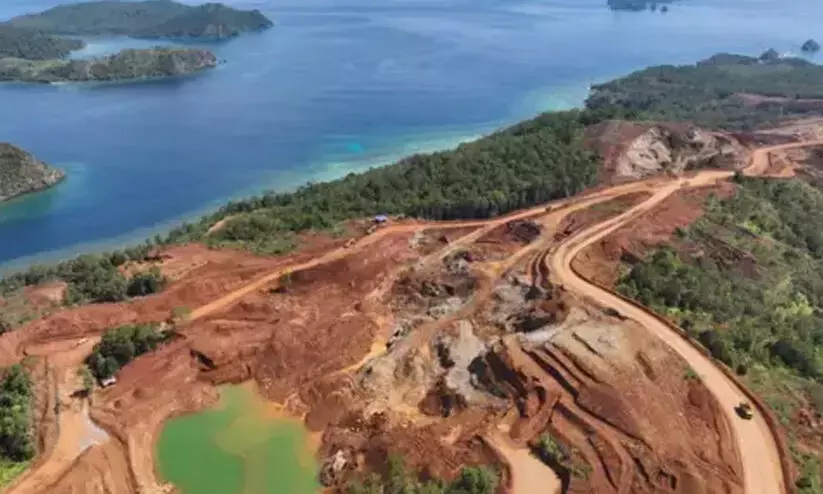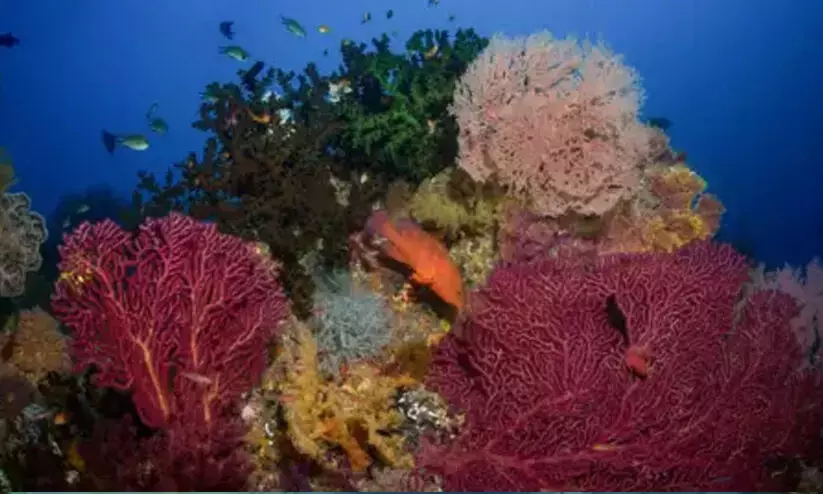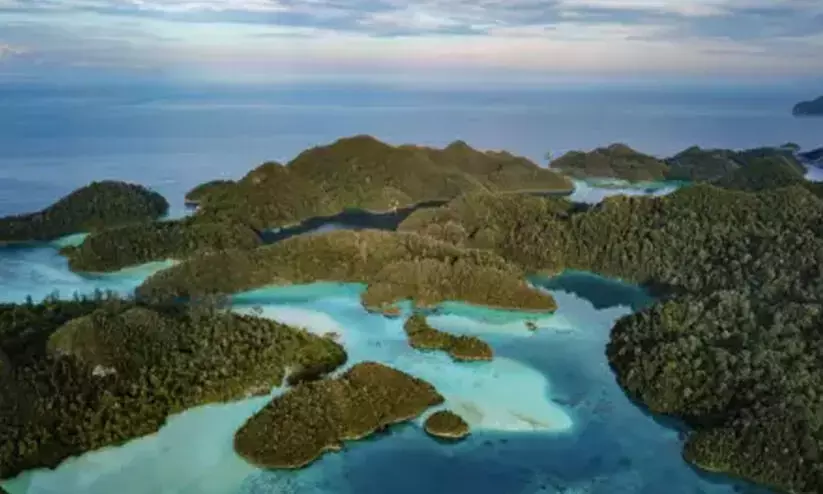
'Amazon of the Oceans' is dying in the race for EV tech
text_fieldsJakarta: The Raja Ampat archipelago, a group of small islands in Indonesia’s southwestern Papua province, is known as the “Amazon of the seas.” It is home to one of the most biodiverse marine ecosystems on Earth. But a destructive process is underway here that could wipe it out. Mining for nickel, which is used in electric vehicle batteries and stainless steel, has increased here in recent years, according to the organization Global Witness. Drone footage captured by these environmentalists shows how nickel mining has destroyed forests and polluted water.
As a result of their actions, the Indonesian government revoked the permits of four of the five mining companies operating in the area this week. A photo taken in December 2024 shows mining operations on the island of Kauai in Raja Ampat. Indonesia’s environment ministry said in a statement that Raja Ampat’s biodiversity is a world heritage site that must be protected. The ministry acknowledged that it was paying close attention to the mining operations in the area, but that photographs taken by Global Witness as part of an investigation showed that environmental damage had already been done.

In addition to deforestation, aerial images show mining debris flowing into the ocean, home to a diverse coral reef. Global Witness has released data showing that land use for mining increased by 500 hectares (the equivalent of about 700 football pitches) on multiple small islands in the archipelago between 2020 and 2024.
However, environmental groups, including Greenpeace, are concerned that the government’s decision could be overturned if mining companies take legal action. A company operating on the nickel-rich island of Gag has been given permission to continue its operations, although the government has said it will order the restoration of environmental impacts there.
Dr Mark Erdmann, a coral reef conservationist and ecologist, said he was surprised and very happy with the government’s decision to cancel the mining permits. He added that it is a global hotspot for marine biodiversity.

The need for what is known as critical minerals shape economic decisions around the world. It was the driving force behind US President Trump’s recent executive order to start mining metal nodules from the deep sea in international waters, a move that China has called illegal.
Dr Erdmann points out that balancing economic growth and environmental protection is a particular dilemma for Indonesia. It has a lot of nickel. He says some of it will come out of the ground one way or another.
The large island nation of Indonesia has nickel deposits covering most of the country. The research found that mining activities have reduced poverty slightly. But there has been a “significant deterioration in environmental well-being”, including increased local water pollution and air pollution.
While Indonesia is a global player in the nickel market, it is important not to lose sight of what is happening locally, warns Dr Lo, one of the researchers.


















